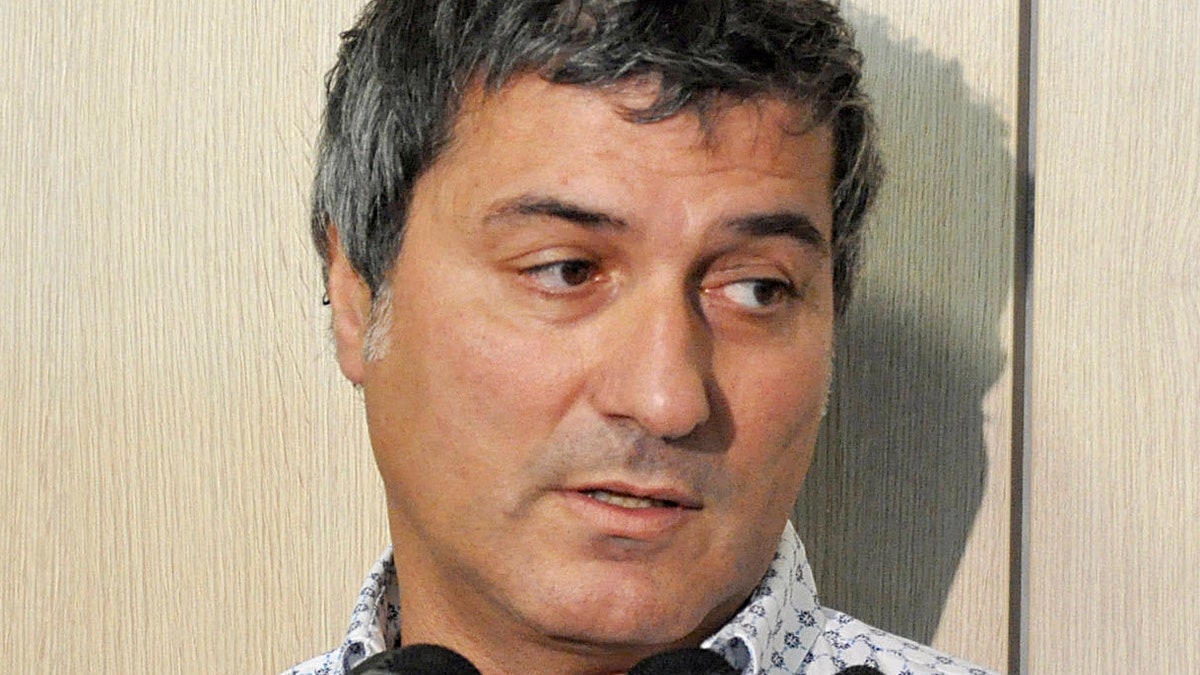
In this Friday, July 30, 2010 file photo, Dr. Paolo Macchiarini talks to journalists during a press conference, in Florence, Italy. (Copyright 2016 The Associated Press. All rights reserved.)
If you’ve been following the story of stem cell surgeon Dr. Paolo Macchiarini and the scandal unfolding at the Karolinska Institute in Stockholm, you are right to question the ethics of medical award competitions and what exactly constitutes a medical breakthrough. If you haven’t, allow me to take you into the most disturbing story in modern medical science.
Macchiarini was involved in at least 15 windpipe operations that used patients’ own stem cells. This surgical finding was highly noted around the world, and overnight, thanks to features such as one on “60 Minutes” and generous coverage by other, numerous media reports, Macchiarini had become a world sensation.
However, as time passed, scientists began questioning his seemingly innovative procedure. Two of Macchiarini’s operations resulted in death, and a third recipient has reportedly required continuous hospital care since the transplant.
Macchiarini’s first pediatric patient, 2-year-old Hannah Warren, was born without a windpipe, and could not swallow, eat or talk without assistance. Without other surgical options, she received the artificial windpipe in April 2013, but, the following July, Children’s Hospital of Illinois announced in a statement that she “was unable to overcome additional health issues that were identified as her care progressed,” and that she died. The other patient who died after undergoing Macchiarini’s procedure, in 2011, had suffered from throat cancer. He died three months after the operation.
Despite other professionals questioning the procedure, Macchiarini has consistently denied any wrongdoing. But an investigation later revealed the Karolinska Institute, with which Macchiarini was affiliated, did not properly vet his work. An external inquiry commissioned by the Karolinska University Hospital regarding the aforementioned three operations eventually led the hospital’s director to issue a formal apology to the patients’ families. In the statement, the hospital said the conduct was “unacceptable and exceptional.”
Macchiarini stopped performing the procedure at the hospital in 2013, but he carried out five additional procedures at other locations. Now, he faces numerous accusations of scientific fraud and misconduct. One accusation levied against him includes mislabeling the procedures as medical care rather than clinical research, which allegedly allowed him to skirt protocol and avoid submitting the procedure to an ethical review board. He has also been accused of failing to obtain a permit from the Swedish Medical Products Agency to use growth-promoting drugs, which are not approved. Swedish prosecutors are investigating the once-lauded surgeon on suspicion of gross criminal negligence.
On Tuesday two individuals on the 50-member panel that awards the Nobel Prize in medicine, arguably the most prestigious award in the field, were dismissed for their roles in the Macchiarini scandal. Harriet Wallberg and Anders Hamsten, who held high-ranking positions at the institute, and were instrumental in recruiting and collaborating with Macchiarini, have been accused of ignoring major warnings about the scientist.
In March, when Macchiarini’s grievances were revealed and the Karolinska Institute fired him, I could only watch the news unfold and hope to God there was some merit that the procedures would be justified on the grounds of being lifesaving. My prayers went unanswered, and now we must deal with the fallout. As medical professionals, we owe it to each other to keep ourselves accountable for the actions we take. Is a title or award so sacred in our community that we willingly abandon the Hippocratic Oath we all took upon entering the medical field?
The Nobel Prize is one of the most coveted achievements a medical professional can obtain, so shouldn’t it be entrusted to the most upstanding people to award it? The Macchiarini scandal, and the alleged role the two judges played in allowing him to essentially act under his own accord, sheds light on the possible corruption behind the scenes of these “medical miracle” stories. There should be no question that the award go to a deserving recipient, but if the award panel can’t be trusted to properly vet candidates, who can?
